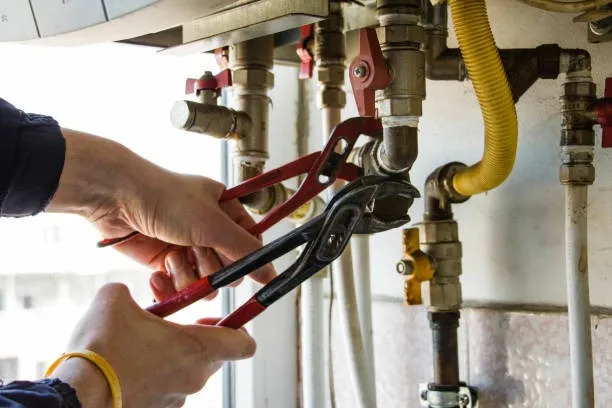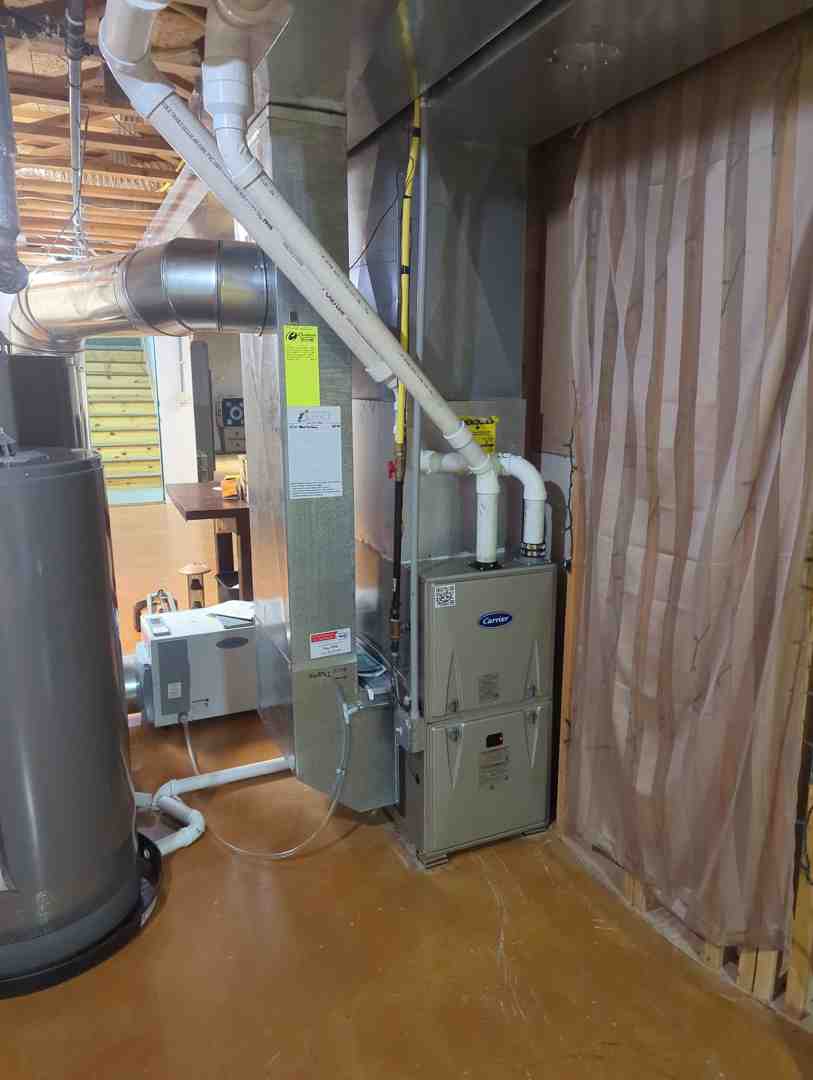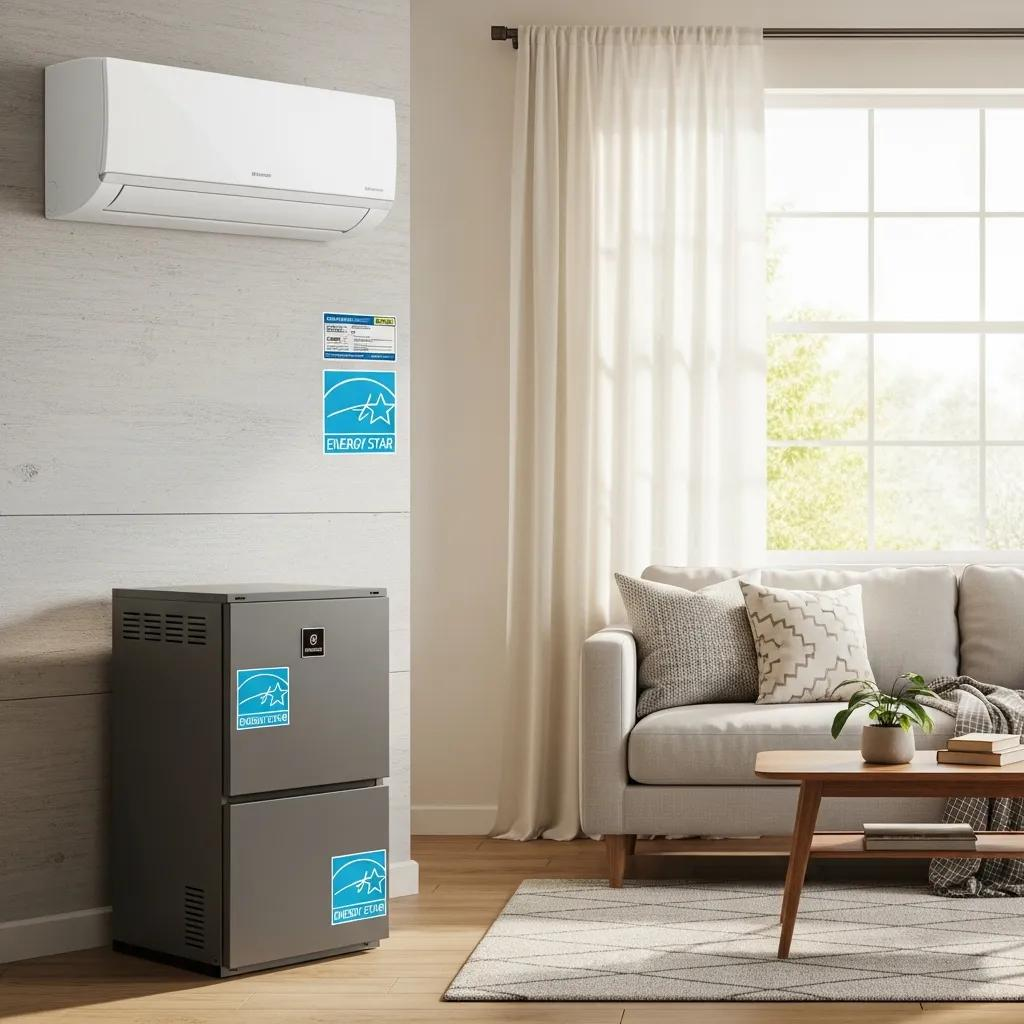Commercial & Industrial Water Heating Systems

Stop Guessing About Your Commercial Water Heater Upgrade
Choosing a new water heating system for your business isn't like replacing a home unit. It's a major capital investment that directly impacts your operating budget, customer experience, and even your compliance with local codes. The market is crowded with technical jargon and biased manufacturer claims, making it difficult to find a clear path forward. Business owners and property managers across Wisconsin often find themselves stuck, trying to translate BTU ratings and energy factors into what really matters: long-term value and reliability.
This guide cuts through the noise. We'll provide the straightforward, business-focused comparison you need to evaluate your options with confidence. We’ll break down the core technologies, explore their real-world applications for businesses like yours, and give you the framework to make a decision that pays dividends for years to come.
The Three Paths to Commercial Water Heating: A Business Owner's Guide
When you look past the brand names and model numbers, there are three primary technologies driving commercial water heating today. Understanding the fundamental trade-offs between them is the first step toward a smart investment.
1. Traditional Tank Heaters: The Reliable Workhorse
These are the systems most people are familiar with: a large, insulated tank that heats and stores water, keeping it ready for use. For commercial applications, these are scaled-up versions built for higher demand and durability.
- Best For: Businesses with predictable, high-volume needs and the space to house the unit. Ideal for apartment buildings managing morning rush hours or gyms with busy locker rooms.
- Business Advantage: Lower upfront installation cost and proven, simple technology that is straightforward to service.
- Key Consideration: They consume energy to keep the stored water hot (standby heat loss) and have a larger physical footprint.
2. Tankless (On-Demand) Heaters: Endless Hot Water & Space Savings
Tankless systems heat water instantaneously as it flows through the unit. They don't store hot water, which means they can't "run out." Multiple units can be installed in parallel to meet extremely high demand.
- Best For: Businesses where a constant supply of hot water is mission-critical and space is at a premium. Think restaurants needing immediate hot water for dishwashing or hotels ensuring guests never have a cold shower.
- Business Advantage: Significant energy savings by eliminating standby heat loss. Their compact size frees up valuable floor space in mechanical rooms.
- Key Consideration: Higher initial investment compared to tank models. The electrical or gas infrastructure must be able to support their high-power draw.
3. Heat Pump (Hybrid) Heaters: The Ultimate in Energy Efficiency
Heat pump water heaters don't create heat directly. Instead, they cleverly move it. They pull heat from the surrounding air and transfer it to the water in the tank. According to the U.S. Department of Energy, this process can make them two to three times more energy-efficient than conventional electric resistance models.
- Best For: Businesses focused on maximizing long-term ROI and minimizing their carbon footprint. Excellent for new constructions or major renovations where the system can be integrated thoughtfully.
- Business Advantage: The lowest long-term operating costs and the biggest potential for energy savings, often cutting water heating expenses by 60% or more.
- Key Consideration: The highest upfront cost of the three. They require adequate airflow and space to operate efficiently and may not be suitable for tight, unventilated closets.
Beyond Upfront Cost: Calculating Your System's True Value
The sticker price is only one part of the equation. To understand the real financial impact of your choice, you need to consider the Total Cost of Ownership (TCO). A cheaper unit that consumes more energy can easily cost you more over its lifespan.
A simple TCO framework looks like this:
TCO = Initial Installation Cost + (Annual Energy Costs x System Lifespan) + Projected Maintenance Costs
While every business is unique, this calculation consistently shows that investing in efficiency pays off. Higher-efficiency units like tankless and heat pump systems may require more capital initially, but their dramatic reduction in monthly energy bills leads to a lower total cost over time. For businesses managing tight budgets, we also offer special financing options to make these high-efficiency systems more accessible from day one.
Which System is Right for Your Milwaukee-Area Business?
The ideal water heating solution depends entirely on your specific operational needs. A system that's perfect for a restaurant in the Third Ward could be completely wrong for a multi-family property in Wauwatosa. Here’s how these technologies apply to common local business types.
For Restaurants & Hospitality
In food service, hot water is non-negotiable for sanitation, cooking, and guest comfort. The demand can be sudden and intense. Tankless systems are often the perfect fit, providing an endless supply for high-temperature dishwashers and simultaneous handwashing sinks without taking up precious kitchen or storage space.
For Multi-Family Apartment Buildings
Property managers for commercial clients face the challenge of "peak demand"—that period in the morning and evening when dozens of tenants are using hot water simultaneously. A properly sized, high-capacity tank system or a bank of parallel tankless units can be engineered to handle this load reliably, preventing tenant complaints and ensuring consistent performance.
For Industrial & Manufacturing
Facilities like breweries, food processing plants, or manufacturing sites often need water at specific, sustained high temperatures. Standard commercial units may not suffice. These applications demand rugged, specialized systems designed for continuous, heavy-duty use and precise temperature control.
The Aliance Advantage: Expertise Beyond the Equipment
Choosing the right type of water heater is half the battle. Ensuring it’s designed, sized, and installed correctly is what guarantees performance and efficiency for the next decade. This is where national suppliers and online catalogs fall short—they can't provide the local expertise your business requires.
Our approach is different. We focus on engineering a complete solution, not just selling a box. This includes:
- Precise System Sizing: We analyze your peak demand and usage patterns to ensure your system is powerful enough to perform without being oversized and inefficient.
- Local Code Compliance: We navigate all local and state regulations for you, ensuring your installation is safe, compliant, and up to code from day one.
- Long-Term Reliability: A great installation is the foundation of a long service life. And when you do need support, our team is right here in the community, offering 24-hour emergency services to protect your business from costly downtime.
Frequently Asked Questions for Wisconsin Business Owners
How long does a commercial water heater last?
While it varies by model and usage, a well-maintained commercial tank-style heater typically lasts 8-12 years. Tankless units often have a longer lifespan, potentially lasting up to 20 years, as their components are under less constant stress.
What are the maintenance requirements for these different systems?
Tank heaters require periodic flushing to remove sediment buildup, which can reduce efficiency and damage the tank. Tankless units should be descaled annually, especially in areas with hard water, to keep their heat exchangers clean and efficient. Heat pump systems require filter cleaning and regular checks of the refrigerant system.
Are there rebates or incentives available for high-efficiency models?
Yes, many federal, state, and local utility programs offer significant rebates and tax credits for installing ENERGY STAR® certified commercial water heaters, especially heat pump models. These incentives can substantially reduce the upfront cost and accelerate your return on investment.
How do I know if I need a repair or a full replacement?
If your system is experiencing inconsistent temperatures, making unusual noises, or showing signs of leaking, it needs immediate attention. We can assess whether a targeted repair is cost-effective or if the age and condition of the unit make a replacement the smarter long-term financial decision.
Your Next Step: A No-Obligation Commercial Assessment
You don't have to make this decision alone. Let our experts provide the clarity you need. Schedule a complimentary commercial hot water assessment with Aliance Heating & Air Conditioning.
We'll visit your property to:
- Evaluate your current system's performance and efficiency.
- Understand your business's unique hot water demands.
- Discuss your budget and long-term operational goals.
- Provide a clear, data-driven recommendation on the best system for your specific needs, with transparent, upfront pricing.
Take the guesswork out of your next big investment. Contact us today to ensure your business has the reliable, efficient hot water it deserves.
PREMIUM EQUIPMENT BY GOODMAN
Industry-leading ductless mini-split systems for targeted zone control





